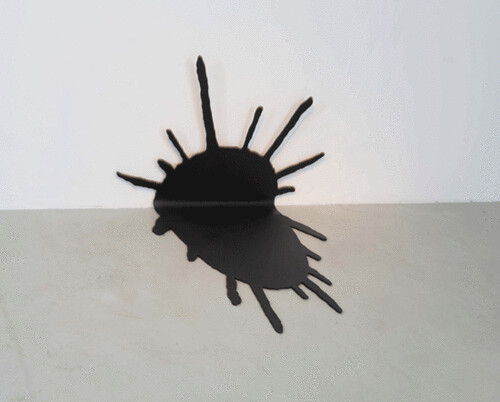It was
a long hiatus since I have written anything for my blog. So why not a little
about a little book called “Johnny gone down” by Indian-English writer Karan
Bajaj. The previous “Indish” writer I read was Chetan Bhagat (One night at call
centre) and liked the book just for its lucid style and simple plot. Well, this
one was entirely different with a complex plot. The story takes place in many countries starting
from America, then to Cambodia, Brazil, back to America and finally settling in
India. The protagonist dons various roles of an MIT graduate, a Buddhist monk,
accountant of a local goon/mafia don, software wizard and eventually a loving
father/husband. The journey is tumultuous, thrilling and racy. The
author didn’t give over emphasis on the geographical descriptions which I liked,
as the novel is not a travelogue. He successfully narrates the story with
all the necessary details as the “Brazilian favela”, “Buddhist monastery” and
the “corporate world”. Obviously the author is interested in philosophy as the
book is replete with Buddhist doctrines (another turn-on for me) and dwells
upon the impermanence of life in general. The protagonist is not at all
interested in money and almost anything mundane other than love, which I found quite amusing.
Is it possible to be such a man impervious to pain, emotions, money, fame and virtually
everything human. He touches the lives of everyone he meets, but never demands anything from the people around him (unbelievable so). Besides he is so dark and so angelic at the same time which I could not comprehend. I know that we all have shades of grey, but a person who knowingly chooses a difficult path is beyond my logic.
I am
going to give some spoilers here, but not all. The synopsis is as follows; the protagonist is
an extremely intelligent man (no wonder he got to MIT), with enormous physical
prowess (he survived genocide) and later a broke insomniac who don’t care for
anything. A harmless vacation to Cambodia along with his bosom friend turns
into a disaster where he got entangled in the Cambodian bloodshed revolution of
“Khmer Rouge” instigated by the
greatest of Asian dictators, Pol Pot. He somehow survives it (many unbelievable
elements are there in the Cambodian episode though) and ends up in a Buddhist
monastery at Thailand, deep meditation follows for years. Despite the
meditation, his mind continues to be restless and haunted by the past
experiences (in fact he is haunted by past experiences almost until the end
which not over-the-board, considering the degree of traumatic experiences he
had gone through in Cambodia). He then helps his Buddhist guru to set an
off-shoot of their monastery in Brazil where he meets a beautiful Brazilian
model during the air travel and instantaneously feels an attraction for her.
Well, it ends there but her image gets imprinted in his mind which we will read
in later chapters. He gets more and more restless at Brazil and finally he gets
out of the monastery with all the support from his guru who had already
understood his inner struggles. Accidentally, he then joins a local ‘favella’ as
an accountant, succumbs to the Brazilian underworld life abound in sex and
violence, helps the ‘donos’ (name for Brazilian underworld don) gain
significant amount of money and he achieves nothing other than his own
contentment in helping others. During this time he marries the prior mentioned
Brazilian model and embarks on a successful married life. On the eve of the
arrival of his bundle of joy, he was forced to get out of Brazil as the
Columbian drug mafia puts a price on his head. He migrates to America and
befriends a broke software developer who also happens to be an MIT graduate. He
wittingly and painstakingly helps him in fulfilling his ideas; in fact he
develops a website (a virtual reality chat site) with the aim to rekindle with
his own wife and son thousands of kilometers away in Brazil and finally gets
addicted to the game he developed. His addiction proved lethal as he avoided
food and started obsessively searching for his wife. One would wonder about the
existence of telephone and email, but protagonist cannot use the traditional
systems of communication due to the fear of tracking by the dreaded Columbian
drug cartels. He then gets emaciated and weak due to his addiction and finally
ends up in hospital. Out of regret, he escapes again leaving all the fruits of
his work to his protector and heads to India for a duel where one person gets
shoot to death for the amusement of the viewers. Yes, a game of death. Many
stories unveil after that which you can read from the book. Don’t worry, it is not a black story at all, the
end all is all well and his ultimate realization of truth comes. More like an
enlightenment. He finally finds happiness and peace. The plot was
racy and a little complex but the characters are well structured.
The story is all about the “Faustian journey” of an ordinary
man, impermanence of almost everything in life and his ultimate self realization. There
are many beautiful passages in the book some of which I would like to present here. Try this one out: Our protagonist is traveling to India via train and he meets two random strangers, the
conversation moves out in the direction of one’s choice to go abroad or stay in
India.
“The
deer wandered restlessly from forest to forest, searching for the divine
fragrance, not knowing that the musk rest in his own belly”
More
such philosophical quotes are there which I found extremely impressive for a
man of such young age as that of Karan Bajaj. In author's personal website it is clearly mentioned that he is a "thriving yogi". So no wonder. Another quote from a random stranger,
“Jesus
always creates a pattern. When you are close you only you see unraveled threads,
but with time and distance, it reveals itself as a mosaic. Just wait and watch.
Everything was meant to be exactly the way it is”. Such quotes are really
liberating.
Try
this wonderful conversation between protagonist’s wife and him about him being
overprotective to his son due to his unreasonable fear of an impending attack
from the drug cartels on his family.
“Did
I tell you about the misguided botanist mentioned in the book I am reading? The
gentle botanist saw a butterfly struggling in her cocoon and felt so bad that
he pulled her out so she wouldn’t have to suffer. Of course she shriveled up
and died instead. The botanist didn’t realize that struggling in the cocoon,
fighting and stretching, is what makes the ugly fat moth a butterfly. Like the
botanist, you want to make sure he doesn’t suffer, but you will end up
smothering him instead. You don’t realize that your struggles were essential to
make you what you are. You can’t deny him his own”.
The
protagonist amasses lot of money in his various avatars, but
losses everything he makes, every time, but he is not wary of that loss of
money which is hard to digest. But that is where his Buddhist
upbringing comes to play. He is a monk in all respects even though he out
rightly falls for temptations in many occasions. He had survived unspeakable
savagery, but had not lost the belief in humanity simply because of the
enormous kindness offered by random strangers he met during the various facades
of his life. Yes, the random acts of kindness and their enormous impact on human life - for both the giver and the taker.
Protagonist had all the resources for leading a comfortable corporate life, but he chooses a different path. Chance and destiny played their parts, but mostly it was his decision. He had choices; a reckless life that knows no boundaries or a comfortable restricted life. He chose the former. He had regrets on all the decisions he made, he had nightmares and sleepless nights, his soul wandered aimlessly, until he realizes the truth/his "own self" at the end.
See this introspection of the protagonist while attending an alumni meeting
of Indian MIT graduates, “I was turning my son into them by denying him the
very things that made life worth living – friendship and loyalty, openness and
vulnerability, love and loss, complexities and contradictions, falling, picking
up the pieces, rising and falling again, a world that has no boundaries, a life
that knows no limits”.
There are many things unbelievable in this book, many incongruous and anachronistic elements are also there. Definitely Karan Bajaj needs to do some more research before writing his next book. But his language is fairly good and the writing is quite lucid. The plot resembles a Bollywood film and the protagonist is too hard to believe as I said before. He is not that human. I would not have felt surprised if he was Jesus or any other heavenly creature. It would have been more believable if the protagonist showed a bit more vulnerability and sensitivity and above all he should have expressed the basic human emotions.
This book will make you see life in a different perspective. The book is all about a personal journey which we all will feel, at one point of time in our life. In that way, it touches every one of us. Johnny gone down is not an outstanding work, but it is readable because of the excellent writing and perspectives, even though the plot is quite filmy and unbelievable. My verdict: "a decent read".
















